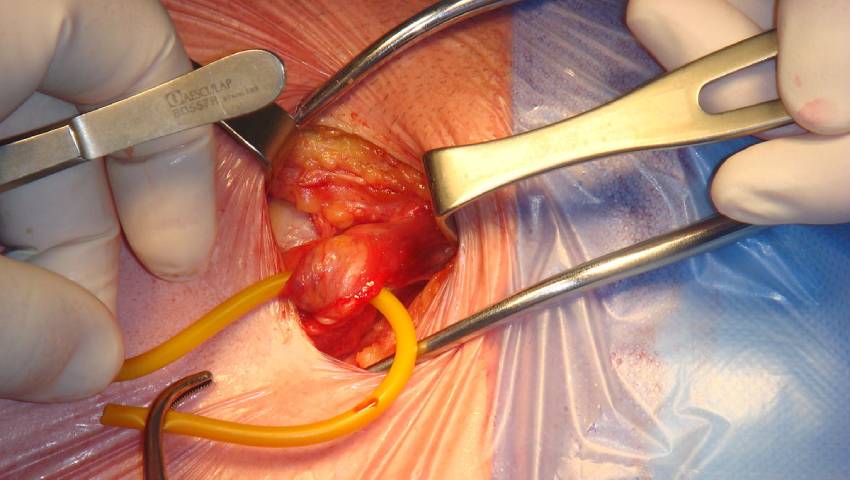
Hernias are a common health issue, affecting 15- 20% of the population in India, and can cause significant pain and anxiety. Thankfully, hernia specialists give essential treatment and support for recovery. In this blog, Dr. Arun S Nair, a famed hernia specialist in Thrissur, answers the top 15 most constantly asked questions about hernias. Whether you are witnessing symptoms, considering surgery, or seeking further information, this guide offers expert advice and practical tips on understanding and managing hernias.
A hernia occurs when an organ or tissue pushes through a weak spot in the girding muscle or connective tissue. This frequently results in a remarkable bulge.
Hernias can be caused by a combination of muscle weakness and strain. procurators that contribute carry heavy lifting, constipation, rotundity, pregnancy, habitual coughing, and other surgeries.
There are several types of hernias:
- Inguinal Hernia Occurs in the inner groin.
- Femoral Hernia Appears in the upper thigh/ external groin.
- Umbilical Hernia Can be found around the belly button.
- Hiatal Hernia Happens when a portion of the stomach pushes into the chest cavity through the diaphragm.
- Incisional Hernia Can develop at the point of a former surgical incision.
Symptoms can vary but generally carry a visible bulge, pain or discomfort( especially when bending over, coughing, or lifting), and occasionally sickness or vomiting if the hernia is austere.
Treatment frequently involves surgical repair to push the pooching tissue back into position and support the weak area. Options include open surgery, laparoscopic surgery, or robotic-assisted surgery.
Post-surgery, you may witness pain and lump, which can be handled with drugs. Rest is pivotal, and full reclamation generally takes many weeks to many months, depending on the type of surgery and individual recovery rates.
Surgical mesh is frequently exercised to support the recreated area and reduce the threat of recurrence. It’s usually considered safe, but like all medical devices, it carries some pitfalls, involving infection or repudiation.
Recovery time can vary depending on the type of hernia and the surgery performed. generally, cases can return to light conditioning within a week or two, but full reclamation might take four to six weeks. For more emphatic jobs, a longer reclamation period may be necessary.
To avoid straining the repaired area, utilize the” log roll” technique roll onto your side, also push up with your arms while swinging your legs over the side of the pad. This minimizes abdominal pressure.
During hernia surgery, you will be given away anesthesia. The surgeon will make a slit to access the hernia, push the pooching tissue back into position, and support the area with stitches or mesh. The gash is then closed.
Post-surgery, it’s important to avoid straining. Stay doused, eat a high-fiber diet, and consider a coprolite softener if necessary. Gentle walking can also support and stimulate bowel motions.
Yes, the bulge generally disappears after surgery as the hernia is recreated and the pooching tissue is pushed back into position.
Hernias can affect anyone but are more common in men, older grown-ups, people with a family history of hernias, those who are fat, and individuals who carry out heavy lifting or have habitual coughs.
Maintain a healthy weight, exercise regularly to strengthen abdominal muscles, avoid heavy lifting or exercise proper lifting ways, treat persistent coughs, and eat a high-fiber diet to avert constipation.
Contact your doctor if you note a new bulge, experience austere pain, nausea, vomiting, or have difficulty passing gas or bowel motions. These could be signs of a serious complication like a strangulated hernia.
Managing hernias requires the right information and medical care. However, it’s essential to consult with a specialist like Dr. Arun Nair, one of the best gastro surgeons in Thrissur. He provides individualized guidance and treatment to ensure the best practicable outcomes. Book your appointment with Dr. Arun Nair today to handle your hernia concerns and start your journey towards reclamation.
Recent News

How to Manage Fatty Liver?
14th April 2025
Is Your Constipation Constant? Here’s What
21st March 2025
When Should You Consider Surgery for
12th March 2025
What is Swallowing Disorder? How to
27th February 2025
Is Laser Surgery Good for Anal
3rd February 2025
5 Early Signs of Liver Damage
8th January 2025
The Differences Between Crohn’s and Ulcerative
21st December 2024
Diagnosed with IBD? Here’s What You
10th December 2024
Gallbladder Stone Treatment Pros and Cons
21st November 2024
7 Silent Signs You Have A
24th October 2024Contact info
1ST FLOOR ZABS FORT building, Civil Lane Road, Poothole P.O, Thrissur, Kerala 680004
Church Post Office Road near Parumala, Thiruvalla, Kerala 689626
+91-9539988886
drarungastrosurgeon@gmail.com
St. Gregorios Hospital, Thiruvalla
The Gastro Clinic(Elixir Clinic), Thrissur
© 2025 Dr Arun Gastro Surgeon All rights reserved



